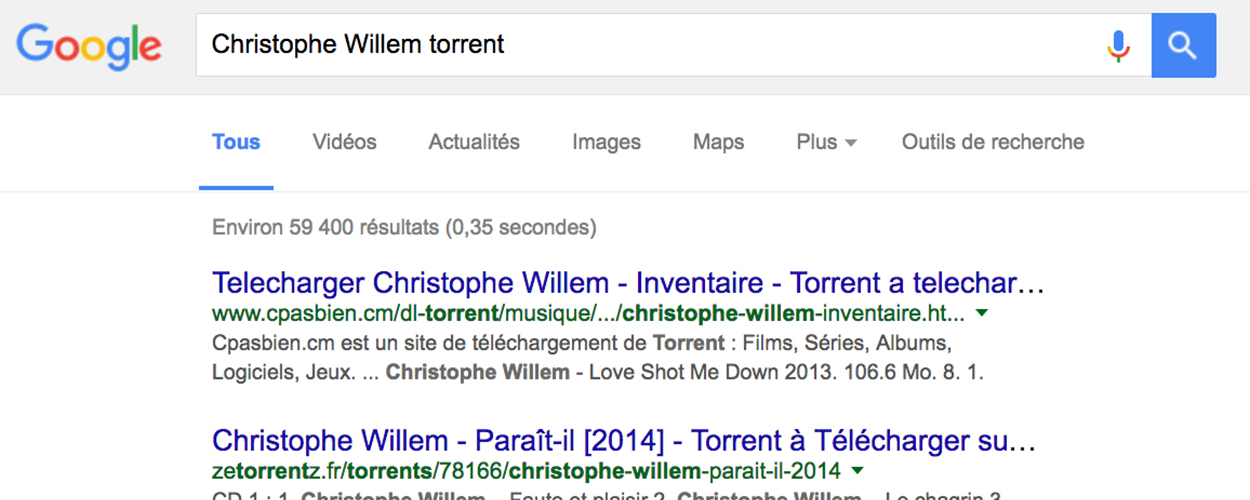This website uses cookies so that we can provide you with the best user experience possible. Cookie information is stored in your browser and performs functions such as recognising you when you return to our website and helping our team to understand which sections of the website you find most interesting and useful.
Business News Digital Labels & Publishers Legal Top Stories
French courts reject search engine ban on the word ‘torrent’
By Chris Cooke | Published on Wednesday 20 July 2016

While many in the music industry would probably rightly argue that Google and its ilk should be doing more to combat piracy – principally by de-listing websites that the courts have deemed rampant copyright infringers – a blanket ban on the word “torrent” is surely a step too far. Well, that’s what the French high court has ruled anyway.
French record industry trade group SNEP has failed in its attempt to force Google and Microsoft to introduce a filter that would basically stop the two firm’s search engines from returning any results if a user typed in the word ‘torrent’ alongside an artist’s name – three specific artists were identified in the lawsuit. The trade group also wanted the search engines to basically block searches for websites with ‘torrent’ in their name.
The label group’s argument went that when an artist name is paired with the word ‘torrent’ in a web search, the vast majority of the links that appear are to copyright infringing content. Which is possibly true, though – of course – the BitTorrent protocol is just a clever way of sharing content over the internet and can be used for entirely legitimate sharing too.
Now, the “we have legitimate uses too, don’t you know” defence didn’t work for specific file-sharing technologies and platforms when facing allegations of authorising or contributory copyright infringement in most courts. But the BitTorrent protocol isn’t quite the same as the Kazaa or LimeWire apps, or The Pirate Bay’s website.
According to The Register, in responding to the action against Microsoft’s Bing, the French court said: “[SNEP’s claims] do not concern an identified site, but all sites accessed by the requested terms, regardless of the identification and even determining the content of the site … The measures sought are similar to general surveillance measure and could cause the blocking of legitimate sites”.
Meanwhile Torrentfreak – which could itself have been blocked under the proposed ban – adds that the court noted how the word ‘torrent’ has meanings beyond the file-sharing protocol in both French and English. And even the P2P definition of the word “refers to a neutral communication protocol developed by the company BitTorrent that enables access to lawfully downloaded files”.
So, injunction denied SNEP-ers. Though, while this case was always somewhat optimistic, there remains the argument that somewhere between identifying specific URLs that host copyright infringing content and the blocking of broad search terms, there is something significant that a Google or Bing could and possibly should be doing.
Which is to say, the aforementioned delisting of sites like The Pirate Bay and Kickass Torrents if and when a court concludes that those sites are sufficiently liable for copyright infringement to be blocked by local internet service providers.





